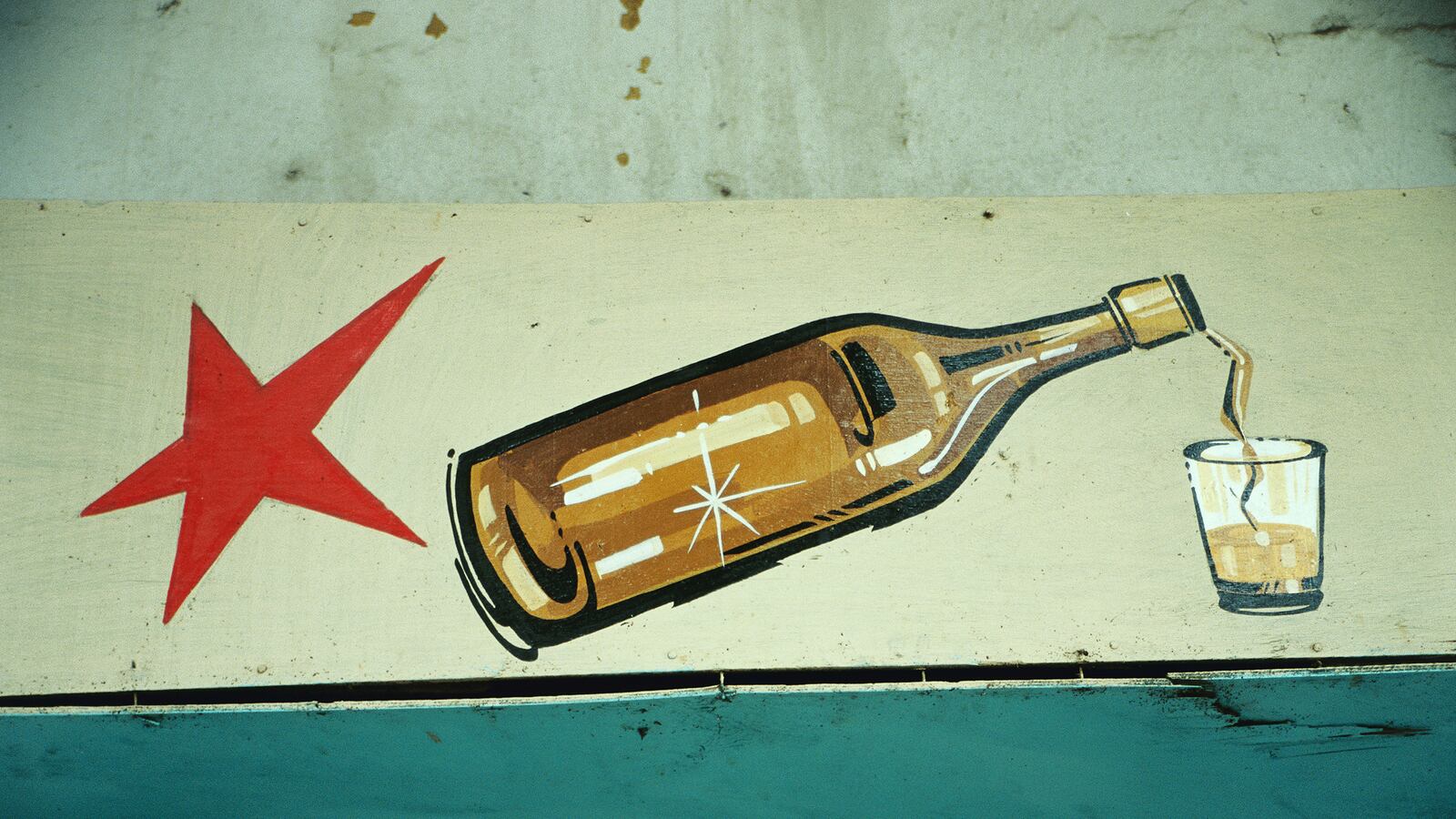Forget a real war with Cuba. Enter the prospect of a rum war.
With the Cold War in the rearview mirror, President Obama’s decision to loosen American trade restrictions on Cuba has made a diplomatic détente possible—but could also set off a corporate skirmish with potentially billions of dollars at stake.
It all has to do with a Cuban rum called Havana Club, which was first manufactured in the 19th century. Following the Cuban revolution in the late 1950s, the communist government seized the brand’s distillery, without compensation. But communist cadres aren’t natural rum-makers, so the regime began a partnership with French company Pernod Ricard. Bacardi, another company that saw its assets famously expropriated by the regime, purchased the American “Havana Club” trademark from its original owner in the late ‘90s.

So in America, “Havana Club” is made by Bacardi in Puerto Rico and can be found in five states. Everywhere else in the world, it’s Cuban-made and distributed by Pernod Ricard. Assuming that America’s trade relationship with Cuba continues to improve, this could mean that the Cuban-made Havana Club could soon be available in the United States. But whose version will it be?
“The central question now is who will get to bring Cuban-distilled Havana Club rum back to the U.S.A.: Bacardi or Pernod. The mellowing of U.S.-Cuba relations could well spike a D.C. rum war,” said Charles Benoit, a lawyer specializing in alcohol legal issues.
This week’s White House announcement on the easing of trade restrictions means that Americans permitted to travel to Cuba can return with up to $100, or about three bottles, of the Cuban Havana Club. But this is far from an amount that makes commercial imports possible.
“The embargo of products such as Cuban rum is statutory and must be removed by Congress. The executive order will permit travelers to bring in limited amounts for personal use, but Havana Club and other products won’t be available on American shelves until and unless Congress acts,” explained Charles Cowdery, a writer who specializes in the spirits industry.
The fact that it was a Cuban company made Pernod Ricard’s rum a rallying point for socialist sympathizers, such as the British campaign “Rock Around the Blockade.” The group has created a Bacardi boycott campaign to highlight the corporation’s involvement in the Cuban embargo.
This has won the Cuban rum no fans in Washington, which has shown favor for Bacardi in the past. In 1998, Congress passed a law that would become known as the Bacardi Act. One section of a large spending bill stipulated that trademarks and brands held by companies expropriated by the Cuban government would be recognized by the United States.
American legal setbacks inevitably followed for Pernod Ricard, which has indicated it could launch its version of Havana Club rum in the United States under the name Havanista. And even under a different name, the widespread importation of Cuban rum into the United States will not be possible until Congress acts to lift the economic embargo against the Caribbean nation.
The outcome of the rum feud is critical for both Bacardi and Pernod Ricard, because the winner could net billions in future sales. The Distilled Spirits Council of the United States estimates that retail sales of rum are approximately $7 billion in the United States. Pernod Ricard’s Havana Club ranks third in the world in rum sales, after Bacardi and Captain Morgan, and is hobbled by a Cuban embargo that prevents the sale of its product in the substantial American market.
Bacardi declined to discuss whether the White House’s loosening of trade restrictions could generate conflict regarding Cuban-made rum, or whether it approved of the White House’s actions.
“Regarding the diplomatic actions yesterday, we will need to wait and see what the impacts are. We hope for meaningful improvements in the lives of the Cuban people and will follow any changes with great interest,” the company said in a statement. “In the meantime, we continue to support the restoration of fundamental human rights in Cuba.”






